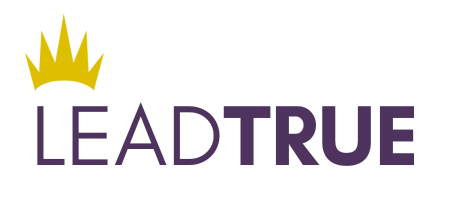The Path to Freedom: Forgiveness, Truth, and Grace
Introduction
This morning, a book I had never noticed before fell off my bookshelf: The Shack. It tells the story of a man, Mack, who must confront unimaginable pain and the question of forgiveness through a mysterious encounter with God in an abandoned shack. The book, though fictional, stirred something profound within me, especially as I reflected on a deep conversation I had just the day before about resentment, truth, and freedom.
Resentment, that heavy and familiar burden, has a way of lodging itself in the corners of our hearts. It festers in the dark, fed by shame and guilt, and becomes the quiet architect of our bitterness. It can feel righteous, even justified, yet it imprisons us. But here's the paradox: before we can let it go, we must first be brave enough to truly face it.
Resentment: The Hidden Weight We Carry
As I've learned through my 12-step journey, the first act of liberation is honesty. Resentments don't dissolve by pretending they're not there, nor by rushing to forgiveness. We must name them, feel them, and-most importantly-admit their hold on us. This is a raw and humbling process. It requires brutal honesty and the willingness to look at ourselves without judgment but with deep sincerity.
This isn't about indulging negativity or wallowing in blame. And it's certainly not about quickly "moving to the bright side," as so many well-meaning people try to do. Positive thinking, while comforting, can become a bypass-a way to avoid the hard truths that need to be surfaced. On the other hand, holding firmly to blame or victimhood is equally unproductive. Both are dead ends.
What's the alternative? The third way.
The third way demands something deeper: a willingness to sit with the discomfort of our resentments, to explore their origins, and to bring them into the light without shame or guilt. Only then can we truly let them be taken from us-not as an act of will, but as an act of grace.
Forgiveness: The Gate to Freedom
In The Shack, Mack struggles to forgive the man who took his daughter's life. His pain is raw, his anger justified. How could forgiveness ever be possible? Yet, through a series of encounters with divine figures-embodiments of God, Jesus, and the Holy Spirit-he learns a profound truth:
Forgiveness is not about excusing or forgetting. It's about releasing the power that resentment holds over us.
One moment in the book particularly resonates. God (represented as Papa) tells Mack: "Forgiveness doesn't establish a relationship. It's just about letting go of your end of the rope."
Mack learns that forgiveness doesn't mean trusting or reconciling with the one who caused harm. Trust must be earned, and sometimes reconciliation isn't possible. Forgiveness, instead, is a personal act of liberation-a choice to no longer let resentment poison our hearts.
The Wisdom of the 12 Steps
The principles of the 12 steps align beautifully with this idea of truth and grace. While traditionally designed for those recovering from addiction, the 12 steps are, at their core, a spiritual guide for anyone seeking freedom from the patterns and attachments that hold us back.
We are all addicted to something-whether it's control, approval, anger, or even our own
resentments. The steps invite us to face these addictions, take responsibility for our role, and surrender to a power greater than ourselves.
Here's how they intersect with forgiveness and freedom:
Step 4: Taking a fearless moral inventory forces us to examine the resentments that shape us.
Step 5: Admitting them aloud brings them into the light, removing their power.
Step 9: Making amends (where possible) begins the process of repairing the fractures in our lives.
Step 10: A daily practice of reflection ensures that resentment doesn't build again.
This isn't about perfection. It's about progress, and it offers a pathway to the third way-living with clarity, freedom, and grace.
Living the Third Way
Forgiveness is an ongoing process, not a one-time event. It begins with the courage to name our pain and ends with the grace of letting it go. It's a journey toward freedom, one step at a time.
Nelson Mandela's words echo this truth:
"As I walked out the door toward the gate that would lead to my freedom, I knew if I didn't leave my bitterness and hatred behind, I'd still be in prison."
Resentment, if we let it, can become a teacher. It shows us where we've been hurt, where we've felt unseen or unvalued. It reveals the patterns we cling to and the places where we've given away our power. By facing it head-on, we reclaim that power.
But there's a sacred balance here. We must neither bypass resentment nor dwell in it. Instead, we walk the narrow, transformative path between the two-the third way-where truth and grace coexist.
An Invitation to Freedom
So today, I ask you to reflect:
What resentments are you holding onto? Are you willing to name them, to feel them, and then to let them go-not as an act of will, but as an act of grace?
Forgiveness is not the easy path, but it's the only one that leads to true freedom. Let's walk it together.
About the Author
Lead True Global Leader Andrea Henning’s vision is that when people discover their authenticity and dare to follow their bliss they are happier and more successful in their lives while serving as an inspiration to their communities.







